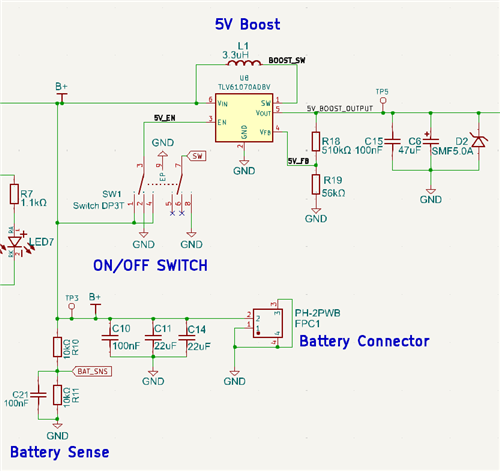Other Parts Discussed in Thread: BQ24040
Tool/software:
I'd like to know what timing requirements exist for the EN and VIN inputs to TLV61070A.
I have a design where a 1S1P lithium cell (~3.7V) provides continuous input to the VIN pin, and EN is switched using a switch. To the left is a BQ24040 battery charger IC:

You can see I have about 44uF at Vin and 47uF at the output. My inductor is 3.3uH rated for Isat=2.5A, Irat=2.3A.
I do not have an external pulldown on EN as it's always connected to GND or 3.7V via the switch, but have tested with a pulldown applied as well.
The issue: If I have the battery connected and move the switch from OFF to ON, the TLV61070A appears to go into an unexpected state where 5V_EN or B+ (which are now connected via the switch) are shorted to GND.
However, if I have no battery connected and the switch is in the ON position when the battery is plugged in (or DC power supply is enabled), the TLV61070A starts up fine.
So to summarize what I'm seeing, if VIN is 3.7V and EN is switched from GND to (floating during contacts of switch moving) to 3.7V, the TLV61070A appears to short EN or B+ to GND.
But if EN and B+ come up at the same time with B+ and EN connected when the battery is plugged in, the IC functions properly.
What might be happening here?

